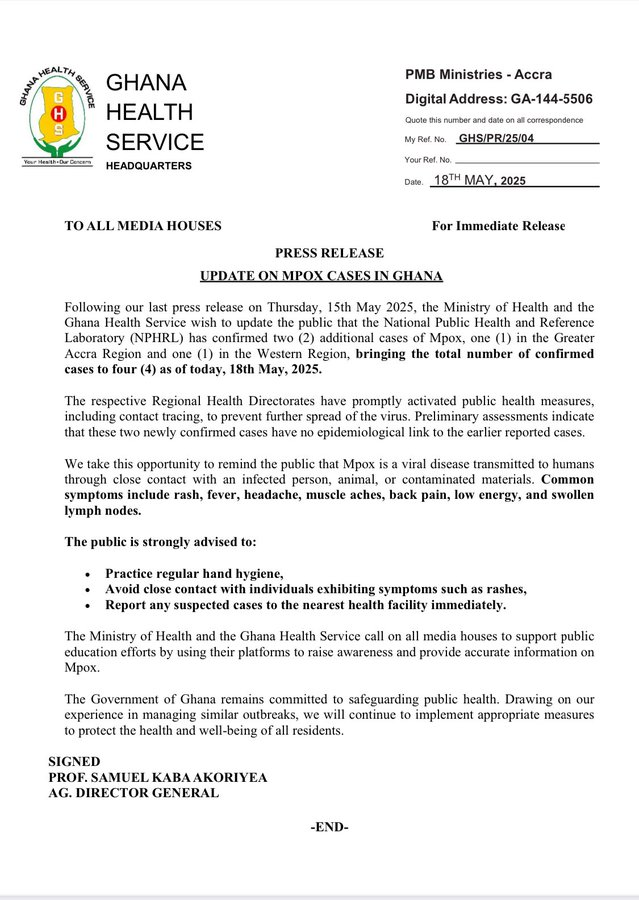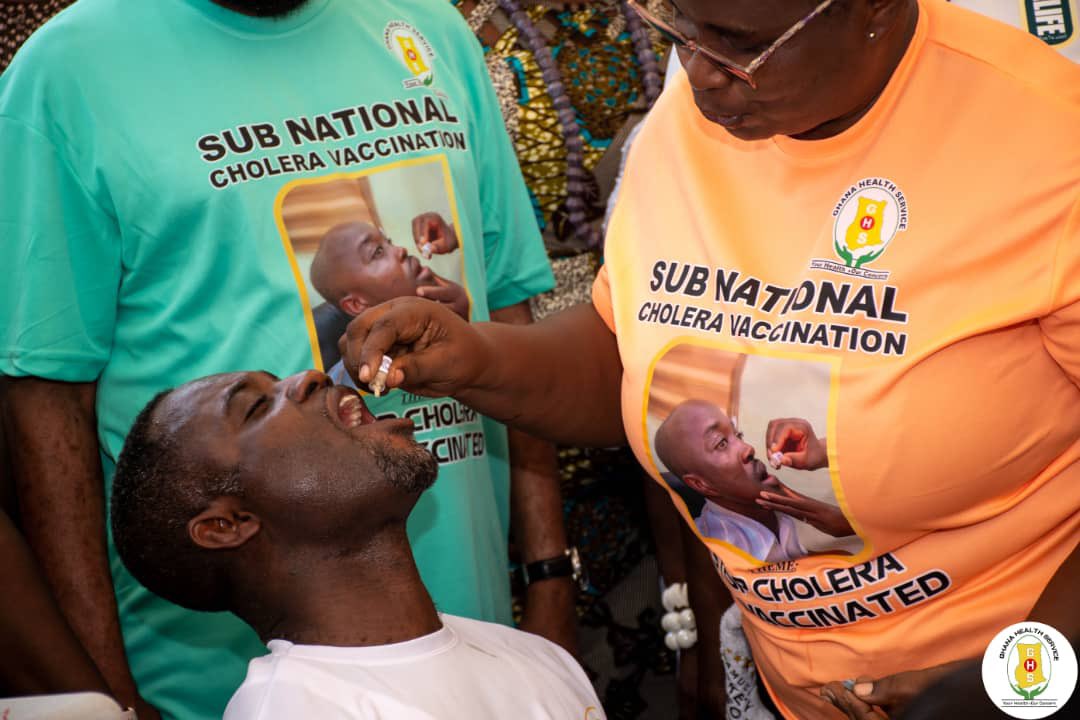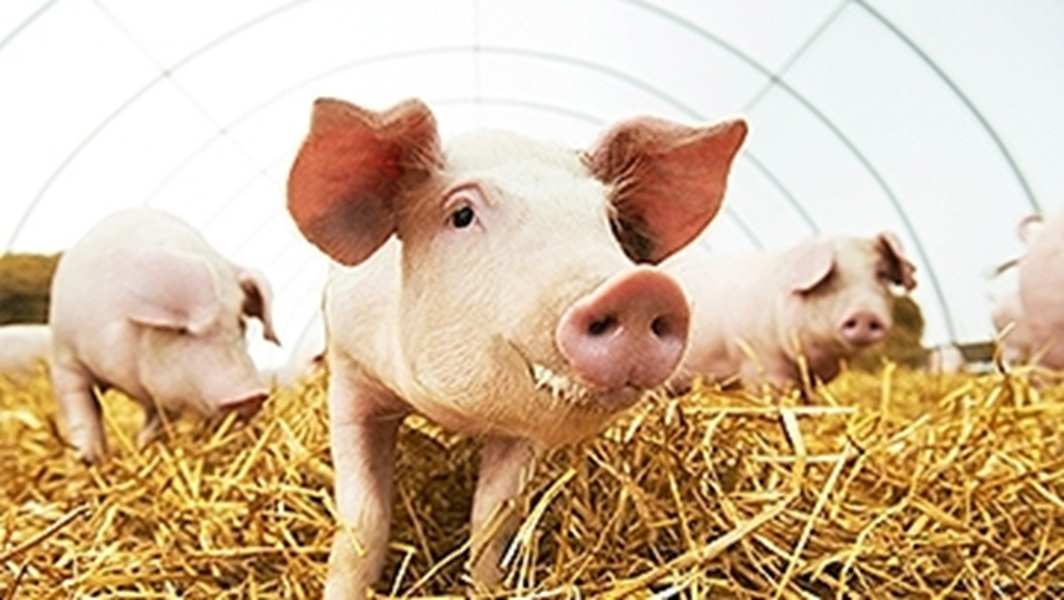The Ghana Health Service (GHS), in a press release dated May 15, 2025, confirmed two cases of Mpox in the Accra Metropolitan Area of the Greater Accra Region.
Three days later, on May 18, 2025, the Service announced two additional cases, one in the Greater Accra Region and the other in the Western Region.
“The respective Regional Health Directorates have promptly activated public health measures, including contact tracing, to prevent further spread of the virus. Preliminary assessments indicate that these two newly confirmed cases have no epidemiological link to the earlier reported cases,” the statement partly said.


What is Mpox?
According to the GHS, “Mpox is a viral disease that is transmitted to humans through close contact with an infected person or animal, or with material contaminated with the virus.”
Common symptoms include fever, rash, headache, muscle aches, back pain, low energy, and swollen lymph nodes.
- Mpox spreads from person to person mainly through close contact with someone who has mpox, including members of a household.
- Close contact includes skin-to-skin (such as touching or sex) and mouth-to-mouth or mouth-to-skin contact (such as kissing), and it can also include being face-to-face with someone who has mpox (such as talking or breathing close to one another, which can generate infectious respiratory particles).
- People with multiple sexual partners are at higher risk of acquiring mpox.
- People can also contract mpox from contaminated objects such as clothing or linen, through needle injuries in health care, or in community settings such as tattoo parlours.
- During pregnancy or birth, the virus may be passed to the baby. Contracting mpox during pregnancy can be dangerous for the fetus or newborn infant and can lead to loss of the pregnancy, stillbirth, death of the newborn, or complications for the parent.
- Animal-to-human transmission of mpox occurs from infected animals to humans from bites or scratches, or during activities such as hunting, skinning, trapping, cooking, playing with carcasses or eating animals. The animal reservoir of the monkeypox virus remains unknown, and further studies are underway.
Read more about Mpox, its symptoms, transmission, treatment, and prevention from our previous report.
By Nusrat Essah

















